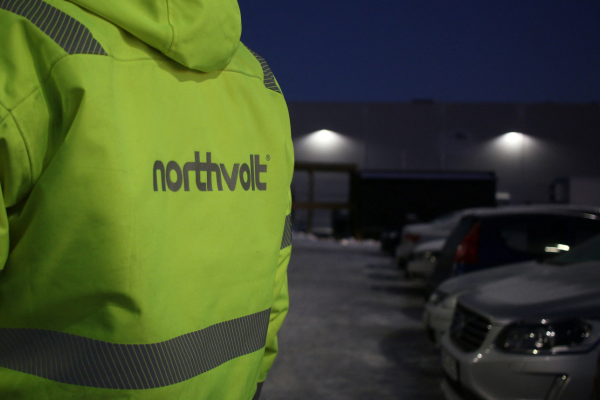Inflation, supply chains and ESG initiatives

Alex Saric at Ivalua discusses why inflation shouldn’t keep businesses from reaching a supply chain Nirvana
Rising inflation has driven a nationwide cost-of-living crisis, leading to some of the steepest price rises seen in decades. Meanwhile, we’ve seen hikes in energy prices, further driving cost woes for many.
And with inflation currently running at a four-decade high and likely to be elevated for some time – the future continues to look uncertain.
There’s no doubt that inflation has been a major concern to businesses as well. Research from Ivalua found that 90% of businesses’ supply chains have been disrupted by inflation in the past 12 months. What’s more, rising energy/ fuel costs (88%) and the rising cost of raw materials (84%) are also causing disruption.
To try and curb the impact of inflation, 54% of UK businesses have increased their focus on cost-cutting. Yet it’s important to remember that other key areas cannot be neglected.
With concerns such as lowering emissions and creating an ethical supply chain more pressing than ever, businesses can’t afford to abandon their investment in Environmental, Social, and Governance (ESG) initiatives at the expense of cost-cutting efforts.
Something in the way of ESG
Many businesses are moving to batten down the hatches to weather the storm of inflation. But ESG is too often being sidelined in the process, and progress is stalling. In fact, because of higher inflation and rising costs, many organisations have been hampered in their efforts to improve supply chain sustainability (64%).
Companies are being forced into a conscious or an unconscious trade-off on what to prioritise, and cost has been taking precedent over ESG progress.
This is happening despite regulatory pressure. The Green Claims Code is working to ensure that organisations are not misleading consumers by making claims about hitting sustainability targets without tangible measures in place. Instead, we’re seeing more than half of organisations (57%) working with cheaper rather than greener suppliers.
Sustainability isn’t the only area taking a back seat. Inflation is also holding businesses back when it comes to improving labour standards (63%). This is happening during an era where the UK is witnessing a 33% rise in modern slavery – with 16,938 potential victims identified, 41% of whom were children.
Procurement can help balance cost and ESG
With the bulk of carbon emissions generated from the supply chain, where most poor labour practices exist, procurement has a huge role to play. But by focusing purely on cost and potentially failing to address the impact of upcoming legislation and ESG commitments, many organisations are exposing themselves to greenwashing accusations or fines.
But at the same time, with inflation representing an imminent concern, it’s difficult to understand where steps can be made to keep track of ESG while cutting costs.
Procurement needs to take the reigns to help businesses make progress. The only way to optimise trade-offs on competing priorities is to first have transparency, know the effects business decisions are having and have the data to back this up.
And procurement teams can provide this transparency – by utilising data to improve supply chain visibility and identify areas for collaboration, organisations and suppliers can work together to achieve cost savings without hindering progress on ESG and other priorities. This could be in the form of bulk purchasing, longer term contracts or early payment discount schemes, each of which can help to reduce risk and curb the impact of inflation.
Collaboration will be vital in fostering the strong supplier relationships required to continue prioritising ESG initiatives without sacrificing relationships by talking solely about cost.
But almost half (49%) of procurement leaders say their organisation has been ill-equipped to deal with and react to uncertainty. And over two-thirds want more responsibility to help manage this uncertainty, but only 37% feel empowered enough by their organisation.
A smarter approach to procurement is required, one that equips organisations with the right technology to gain insights. This will not only help to build bridges now, but ensure supplier relationships pay dividends for years to come – on both saving costs and green gains.
Balancing the scales
Economic concerns may have weighed heavily on the minds of business leaders over recent years. But it’s vital to keep the bigger picture in mind – and not let sustainability and ethical labour goals fall by the wayside.
Working in an inflationary economy is no one’s first choice, but since this is beyond businesses’ control, the best available option is to collaborate with suppliers and weather the storm together.
There needn’t be a trade-off to reach a supply chain Nirvana and hit ESG goals. And while inflation has been high, it’s now dropping, so businesses must go back to focusing on the initiatives and implement procurement for good.
If inflation does rise again, businesses must remember the lessons they learnt now – that a smarter approach to procurement can help lower costs and maintain the relationships needed to build more efficient, greener, and ethical supply chains in the future.
Alex Saric, Smart Procurement Expert at Ivalua
Main image courtesy of iStockPhoto.com

Business Reporter Team
Most Viewed
Winston House, 3rd Floor, Units 306-309, 2-4 Dollis Park, London, N3 1HF
23-29 Hendon Lane, London, N3 1RT
020 8349 4363
© 2024, Lyonsdown Limited. Business Reporter® is a registered trademark of Lyonsdown Ltd. VAT registration number: 830519543





